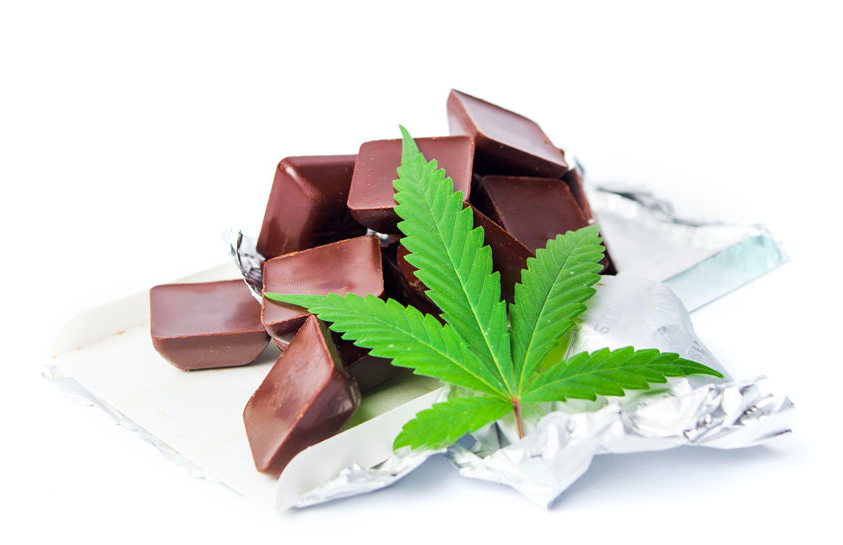On Sept. 14, the House Commerce Committee will take invited testimony on House Bill 119, which proposes to change the tax structure on marijuana.
Currently, Alaska has an $800 per pound excise tax levied by the state — the highest in the country — but proponents of HB 119 say it should be changed to a sales tax collected by retailers.
The excise tax on weight was set after 2014, when the legalization of commercial cannabis production and sales was approved by voters. Commercial pot sales and cultivation started after 2016. But since then, the price of marijuana has dropped significantly in Alaska due to increased competition, making the $800 excise tax a heavy burden in an industry that is having a hard time due to intense competition.
Some in the cannabis business were formerly in the black market, and some who have left the legal cannabis business due to competition driving down prices have probably returned to the black market, where they may find it more profitable without all the regulation and taxes of running a legal business.
In Anchorage alone, the competition among retailers is so intense, some are severely behind on their state tax payments. Because Alaska has no cap on the number of licenses it grants to grow or retail cannabis operations, the excise tax eats into already slim margins.
There are currently about 240 marijuana retail outlets across Alaska. The Marijuana Control Board just approved another six at its Aug. 23 meeting, four of them in Anchorage, where the saturation of retail pot shops is concerning to some residents; there’s more than one store for every 1,700 Alaskans (based on 410,000 Alaskans over the age of 21.)
Alaska’s weight-based excise tax is collected on the first sale of cannabis from a cultivator to a manufacturing facility or retail outlet. After that, there’s no further cannabis tax, but the tax burden is passed along to the consumer, and some cities collect additional sales tax. There are different rates for different parts of the plant, including a $50 per ounce tax on the flower.
Cannabis taxes contributed just $29 million in state revenue in 2022, amounting to 1.2% of all state revenue. At the same time, the industry paid $48.3 million in wages.
One pioneer cannabis grower wrote to the Commerce Committee that the high taxes drove him out of the business, and that he would support a retail-based sales tax, so long as it was not exorbitant.
“My limited Cultivation facility opened in 2016, paid hundreds of thousands to the state of Alaska for excise tax, and went out of business last year at a loss. We operated a clean, well run facility for years, paid all taxes to the state on time, and supported 2 full time employees. What happened?” wrote one grower.
“The current flat tax structure is much too high — $800 tax per pound of bud, $400 per pound of immature bud, $240 per pound of trim,” he wrote.
Wholesale prices have been consistently falling, he said, which increases the percentage of excise tax percentage in the overall price. Current tax paid by cultivators ranges between 25%-60% of the wholesale price.
“The little bit left over does not leave enough to pay the cost to produce the product and make a profit,” he said. “Many Retailers are constantly driving down the price they are willing to pay for wholesale product, without passing these lower prices on to the consumer. The cultivator is left with the $800/lb tax regardless if a pound sold wholesale for $3000 or $1000.”
In addition, growers have a very short outdoor growing season, not sustainable in Alaska with cooler weather and daylight hour changes. This forces most growers to operate indoors and pay high cost for power.
“Some Alaskans like myself pay 27 cents/kwh, let’s compare this to Oregon where the cost is 9 cents/kwh and there is a lengthy outdoor growing season to take advantage of,” he said.
The highest excise tax in the country, the high energy rates, and all other factors driving up the costs, he said, mean “Alaskan cultivators are being strangled out of business.”
But if the retail tax is too high, it could drive the business back to the black market, where people can make a higher profit, he warned.
However, another grower said the current excise structure is proper, and that those who have gone out of business have only themselves to blame.
“There are a lot of cannabis cultivators that are way behind on their tax bills both State and Federal, and those reason often are due to mismanagement of those companies. If a cultivator grows a sub-par product and cannot charge top price that burden is on the cultivator, not the retailer.
“The fact is, quality cultivators are charging top shelf prices per-pound up to $3500, and they can not produce enough. Cultivators who are growing a sub-par product are charging up to $2500 per-pound. The solution for any cultivator is not to pass on your tax burden to the consumer, but to cultivate a quality product that can be sold at a premium price. As with any industry, the Invisible Hand is the best at regulating a free market and this is proven by cultivators that are operating/marketing a quality product, they will outlast the competition,” wrote a Seward business owner opposing the change. His letter was also sent by a few others in the field, verbatim.
Although the letter opposing the change agrees that cannabis growers are paying too much in the per-pound excise tax, a 3% tax would be complicated because some cities already have a basic sales tax, such as the City of Seward, which charges 7% on sales inside city limits, whereas Soldotna and Kenai have a 3% sales tax and Anchorage has a 5% cannabis sales tax.
“The implementation of an additional 3% tax instantly puts some business financially ahead of others,” the letter said.

